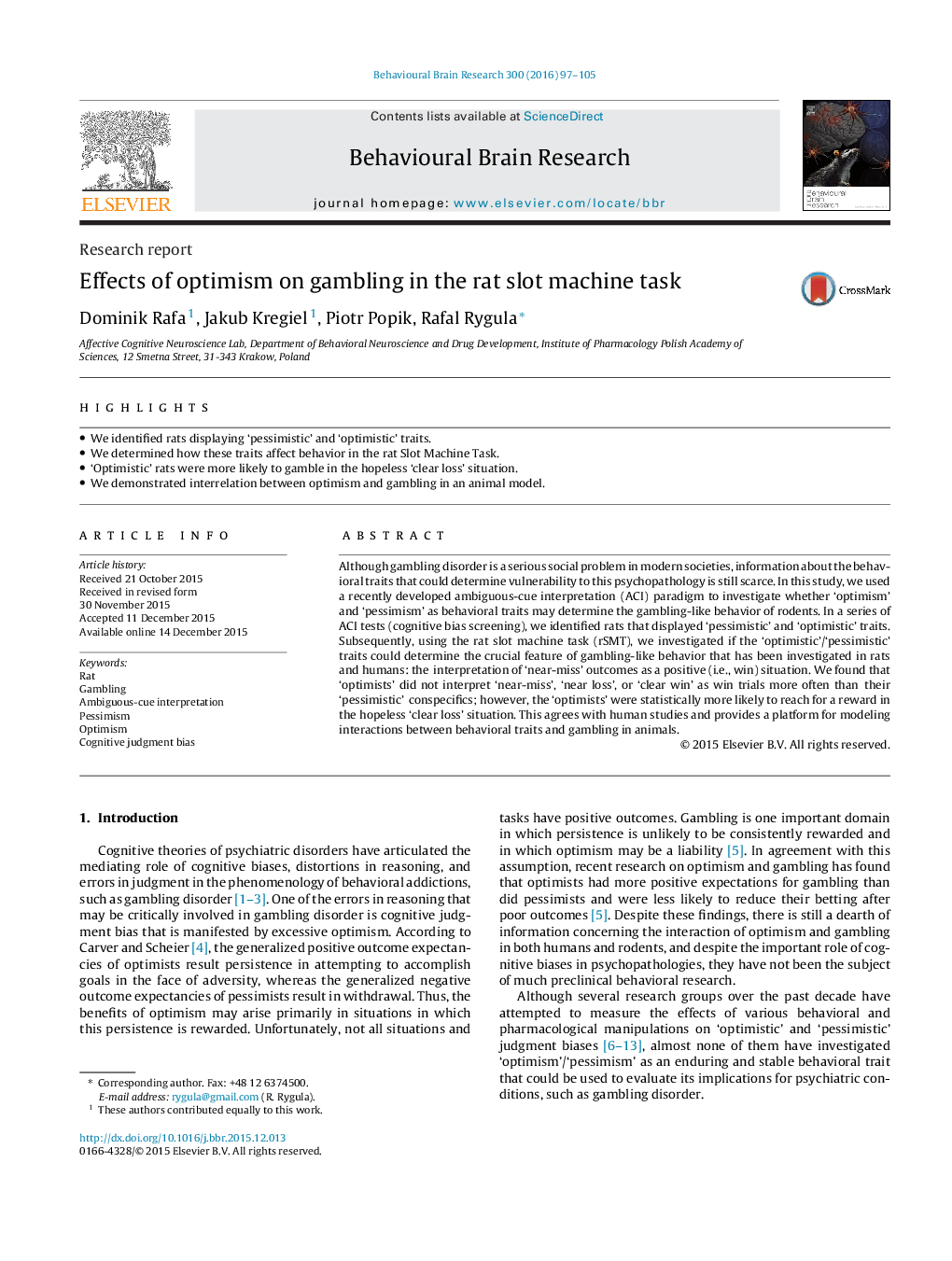| Article ID | Journal | Published Year | Pages | File Type |
|---|---|---|---|---|
| 4312204 | Behavioural Brain Research | 2016 | 9 Pages |
•We identified rats displaying ‘pessimistic’ and ‘optimistic’ traits.•We determined how these traits affect behavior in the rat Slot Machine Task.•‘Optimistic’ rats were more likely to gamble in the hopeless ‘clear loss’ situation.•We demonstrated interrelation between optimism and gambling in an animal model.
Although gambling disorder is a serious social problem in modern societies, information about the behavioral traits that could determine vulnerability to this psychopathology is still scarce. In this study, we used a recently developed ambiguous-cue interpretation (ACI) paradigm to investigate whether ‘optimism’ and ‘pessimism’ as behavioral traits may determine the gambling-like behavior of rodents. In a series of ACI tests (cognitive bias screening), we identified rats that displayed ‘pessimistic’ and ‘optimistic’ traits. Subsequently, using the rat slot machine task (rSMT), we investigated if the ‘optimistic’/‘pessimistic’ traits could determine the crucial feature of gambling-like behavior that has been investigated in rats and humans: the interpretation of ‘near-miss’ outcomes as a positive (i.e., win) situation. We found that ‘optimists’ did not interpret ‘near-miss’, ‘near loss’, or ‘clear win’ as win trials more often than their ‘pessimistic’ conspecifics; however, the ‘optimists’ were statistically more likely to reach for a reward in the hopeless ‘clear loss’ situation. This agrees with human studies and provides a platform for modeling interactions between behavioral traits and gambling in animals.
